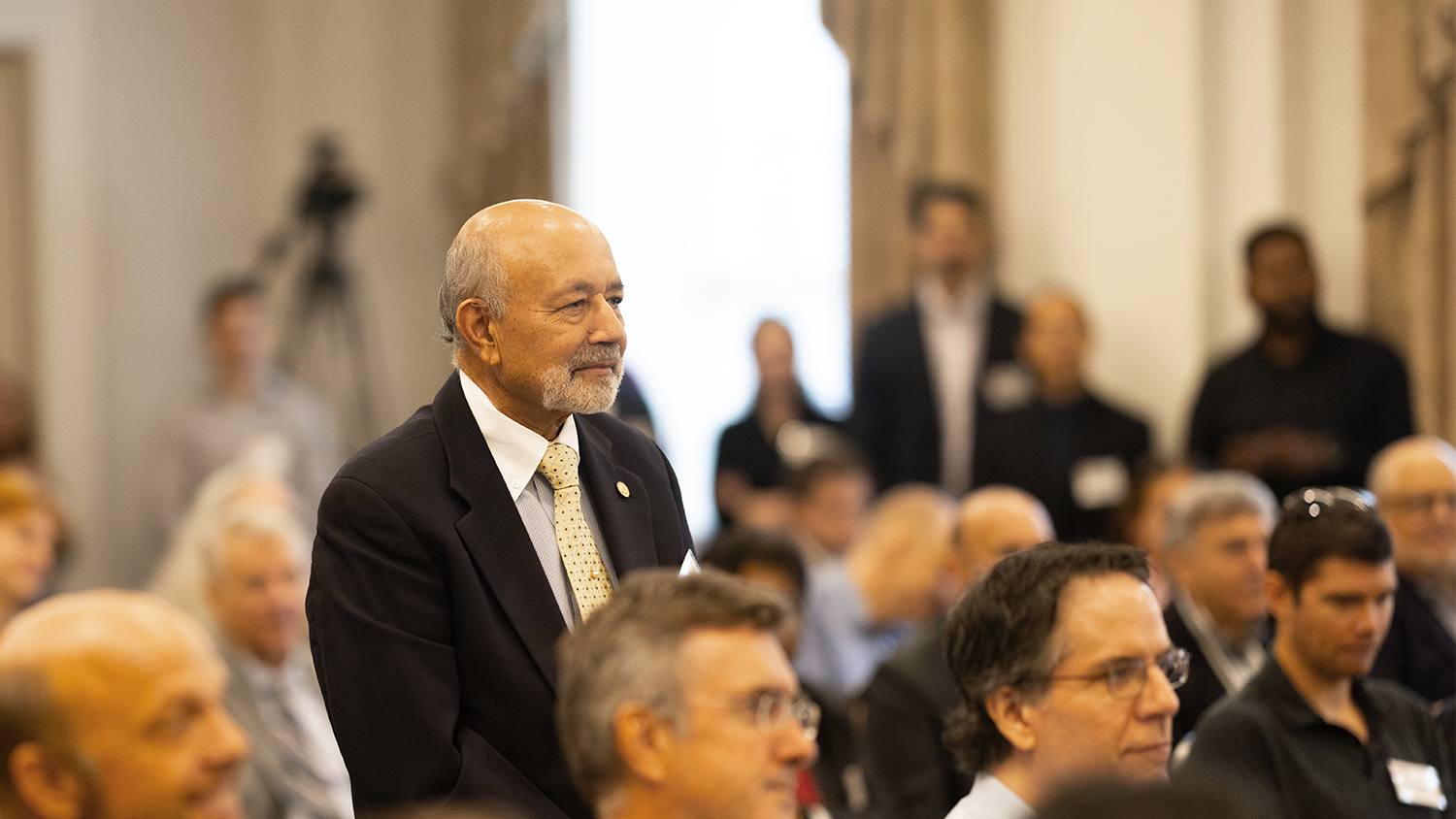Lisa Marshall has always felt at home in higher education. As the director of outreach, retention & engagement for the Department of Nuclear Engineering (NE), for 21 years she has championed values of service, teaching and research. In 2022, she was appointed the inaugural extension assistant professor in NE and was awarded the Social Responsibility in the Nuclear Community Award from the American Nuclear Society (ANS) — all while working on her Ph.D. in higher education at NC State University. She was also recently named vice president and president-elect of ANS.
Marshall grew up in Trinidad, the larger island of Trinidad and Tobago. Her family valued education and the pathways to success it could open. She took that value with her, and her desire to help generations of students realize their potential and reach their goals has fueled her purpose at NC State.
“I have the best job in the world because I work with youth and young adults,” she said. “There are so many students coming through our program who I’m still in contact with because of my approach to education.”
In her new position, the first of its kind within the College, Marshall sees a chance to further develop departmental programming to help students understand how their education and training is valuable to the communities that they will work with.
“Being appointed to this position is a great honor,” she said. “Nuclear education to me is an essence of modern society that is often unseen, but has clear implications to how we can live better.”
Marshall’s dedication to expanding understanding and participation within her field goes beyond NC State. She co-founded the Diversity and Inclusion in ANS Committee. She felt particularly honored to be recognized for that work, which she said is often treated as an add-on but is a fundamental part of making sure all voices are heard.
“A legacy is being built where we are looking at what are our responsibility and privileges that we have, while considering who’s not at the table or if there should even be a table,” she said. “These are the types of questions we must ask ourselves for the betterment of nuclear engineering.”
Marshall will graduate from her Ph.D. program in 2024-25. She has a concentration in opportunity, equity and justice, and her studies have supported her work to improve engineering students’ success and grow the department.
“I’ve been fortunate to merge profession and education,” she said. “The lines of education and engineering are blurred together and to be able to have this interdisciplinary approach to educating our students is a sweet spot for me as I finish my degree and continue my career.”
- Categories:



